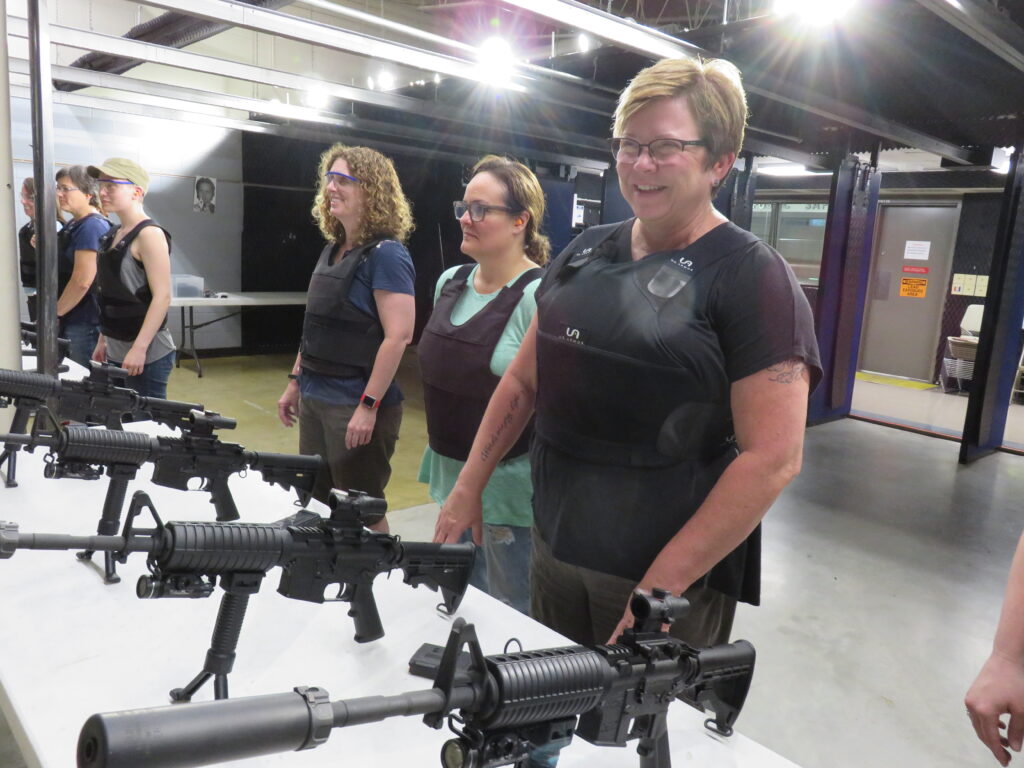Research to Right the Wrongs … and Mary Poppins
Guest Blog by Lee Lofland
Given I was still supposed to be in Antarctica this week (long, sad story), I’d asked Lee Lofland to fill in, and his post is definitely worth reading, so I’m turning the stage over to him.
Retired cop Lee Lofland got so sick of reading blatant errors in police procedure that he founded the Writers’ Police Academy, which is where I met him. I can’t recommend this conference enough for its hands on experiences and workshops given by experts–one of whom was TKZ’s own John Gilstrap. I’ve attended at least four times and learn something new every time. But I’ve rambled long enough … take it away, Lee.
 Writers sometimes bypass the research portion of their craft and rely on rehashing outdated inaccuracies and dog-tired cliches about police. Unfortunately, allowing those blunders to wiggle and squirm their way into dialog, scenes, characters, and settings is occasionally the factor that sends once loyal readers to the words of another author.
Writers sometimes bypass the research portion of their craft and rely on rehashing outdated inaccuracies and dog-tired cliches about police. Unfortunately, allowing those blunders to wiggle and squirm their way into dialog, scenes, characters, and settings is occasionally the factor that sends once loyal readers to the words of another author.
I’m always amazed to learn of the writer who still uses cop-television as a research tool over the many true experts who make themselves available to writers. A great example of a wonderful resource for writers is this blog, Kill Zone. The combined knowledge shared by the contributors to this site is a treasure-trove of information.
With the so many top law enforcement resources available to writers, why, I often wonder, do some still consider as accurate the things they see on television shows such as Police Squad and the woefully ridiculous Reno 911? Even top-rated crime dramas take shortcuts and often make errors in police procedure, cop-slang, etc. It’s TV, and the duty of writers and producers of fictional shows is to entertain, not educate viewers about the NYPD Patrol Guide.
Writing a novel is, of course, a completely different enterprise than writing a television show. Scenes and action play out at a much slower pace; therefore, readers have more time to absorb and analyze the action and how and what characters are doing and WHY they’re doing it.
Shows like Star Trek and Amazon Prime’s Reacher are fiction, but viewers are easily drawn into the action. They’re engaged in what they see on screen because writers provide plausible reasons for us to accept what we’re seeing. (believable make-believe).
The ability to expertly weave fact into fiction is a must, when needed. But writers must have a firm grasp of what’s real and what’s made-up before attempting to use reality as part of fiction.
For example, confusing a semi-auto pistol with a revolver, or a shotgun with a rifle. Those are the sorts of things that cause writers to lose credibility with their readers.
 A great example of this is in a current book I read a few weeks ago, where the main character “racked” a shotgun shell into the chamber of her rifle. A quick message to an expert, such as Kill Zone contributor and weapons expert John Gilstrap, and the writer would have learned that racking a shotgun shell into the chamber is an action used for shotguns, not rifles.
A great example of this is in a current book I read a few weeks ago, where the main character “racked” a shotgun shell into the chamber of her rifle. A quick message to an expert, such as Kill Zone contributor and weapons expert John Gilstrap, and the writer would have learned that racking a shotgun shell into the chamber is an action used for shotguns, not rifles.
 The writing in the book was wonderful, and the story flowed as easily as melting butter oozing from a stack of hot pancakes … until I read that single line. At that point, as good as the book had been, from that point forward I found myself searching each paragraph for more errors.
The writing in the book was wonderful, and the story flowed as easily as melting butter oozing from a stack of hot pancakes … until I read that single line. At that point, as good as the book had been, from that point forward I found myself searching each paragraph for more errors.
So, what are some of the more glaring police-type errors often seen in crime fiction? Well …
- When shot, people fly backward as if they’d been launched from a cannon. NO. When struck by gunfire, people normally fall and bleed. Sometimes they cuss and yell and even get up and run or fight.
- “Racking the slide of a pistol” before entering a dangerous situation is a TV thing. Cops carry their sidearms fully loaded with a round in the chamber. Racking the slide would eject the chambered round, leaving the officer with one less round.
- People are easily knocked unconscious with a slight blow to the head with a gun, book, candlestick, or a quick chop to the back of the neck with the heel of the hand. NO! I’ve seen people hit in the head with a baseball bat and they never went down.
- FBI agents do not ride into town on white horses and take over local murder cases. The FBI does not have the authority to investigate local murders. All law enforcement departments, large and small, are more than capable of solving homicides, and FBI agents have more than enough to do without worrying about who shot Ima D. Crook last Saturday night.
- The rogue detective who’s suspended from duty yet sets out on his own to solve some bizarre and unrealistic case. He’s the alcoholic, pill-popping unshaven guy who never combs his hair, wears a skin-tight t-shirt and leather jacket, and carries an unauthorized weapon tucked into the rear waistband of a pair of skinny jeans. No. If an officer is suspended from duty, they are forbidden to conduct any law-enforcement-related business. Many departments require that suspended officers check-in daily with their superiors.
- CSIs do not question suspects, nor do they engage in foot pursuits, shootouts, and car chases. Typically, they’re unarmed and come to crime scenes after the scene is clear.
- Revolvers do NOT automatically eject spent brass.
- Cops cannot tell the type of firearm used by looking at a bullet wound.
- Cops do NOT fire warning shots.
- Cops do NOT shoot to kill.
- Cops shoot center mass, the middle of the largest target, because it’s the easiest target to hit when even a second could mean the difference between life or death for the officer.
- Cops do NOT shoot to wound. They shoot to stop a threat.
Imagine that a man suddenly turns toward you, an officer. He has a gun in his hand, and it’s aimed at you. His finger is on the trigger, and he says he’s going to kill you. How do you react?
First, the scene is not something you’d expected, and in an instant your body and brain must figure out what’s going on (perception). Next, the brain instructs the body to stand by while it analyzes the development (Okay, he has a gun and I think I’m about to be shot). Then, while the body is still on hold, the brain begins to formulate a plan (I’ve got to do something, and I’d better do it now). Finally, the brain pokes the body and tells it to go for what it was trained to do—draw pistol, point the business end of it at the threat, insert finger into trigger guard, squeeze trigger.
To give you an idea as to how long it takes a trained police officer to accomplish those steps, let’s visit Mary Poppins and Bert the chimney sweep from the movie Mary Poppins. More specifically, that wacky word sung by Julie Andrews and Dick Van Dyke—supercalifragilisticexpialidocious.
The time it takes me to say the word is somewhere between 1.01 seconds and 1.22 seconds, depending upon how quickly I start after clicking the button on the stopwatch. To put this scenario into perspective, the average police officer’s reaction time (based on a study of 46 trained officers), when they already know the threat is present (no surprises), AND, with their finger already on the trigger, is 0.365 seconds. That’s less than half the time it takes Bert to sing that famous word.
In short, in a deadly force situation like the one mentioned above, police officers must decide what to do and then do it in the time it takes to say “supercali.” Not even the entire word.
Considering that hitting a moving object such as an arm or leg while under duress is extremely difficult, if not impossible for some, shooting to wound is not a safe option when a subject is intent on shooting the officer.
- Cops do NOT use Tasers when the situation calls for deadly force.
- Cops should never use deadly force when the situation calls for less than lethal options, such as Taser, pepper spray, baton, etc.
Finally, unless you’re writing historical fiction, your characters will not smell the odor of cordite. Cordite manufacturing ceased at the conclusion of WWII; therefore, scenes written in the past 75 years or so shouldn’t contain anything resembling, “I knew he’d been shot within the past few minutes because the scent of cordite still lingered in the air.”
 Lee Lofland is a veteran police detective and recipient of the Virginia Association of Chiefs of Police Medal of Valor. He’s the author Police Procedure and Investigation, blogger at The Graveyard Shift, and founder and director of the popular Writers’ Police Academy, a hands-on training event for writers, and Writers’ Police Academy Online.
Lee Lofland is a veteran police detective and recipient of the Virginia Association of Chiefs of Police Medal of Valor. He’s the author Police Procedure and Investigation, blogger at The Graveyard Shift, and founder and director of the popular Writers’ Police Academy, a hands-on training event for writers, and Writers’ Police Academy Online.




